Quote
-
All the news the media missed in 2025 fixthenews.com (via Miraz Jordan.)
-
“The right kind of optimism is disciplined. It begins with the premise that action changes outcomes, then organizes institutions, incentives, and narratives to make that premise true.” mongabay.com.
-
The Sydney I know isn’t like what they’re showing on the news writingslowly.com.
- Austin Kleon, interview on The Echoes Podcast, 10 June 2025.
Find the right teacher
There’s a Japanese saying that I included in my book:
If it takes three years, find the right teacher.
But sometimes, you just need to get started. Simon Sarris has a great story about this. He decided to build a barn by trial and error, with little previous barn-building experience. But because he was doing this near the road in front of his house, it attracted the attention of a regular passer-by who just happened to know, in detail, how to build barns.
“Mike would have never stopped by if I was not working conspicuously in my driveway, every day, under a pop-up tent. But I was, and he became interested in my progress, and it happens that he has been timber framing since the 90’s. Had I waited for such a teacher—for he has now taught me a good deal—I would have never found him. But I chose to start, and he was drawn to my adventure. Only by virtue of starting the work was the intersection of our lives possible.” - Start With Creation - by Simon Sarris
The moral? If it takes three years, find the right teacher. But if you start your learning journey with action, the right teacher might just find you.
So now here’s a question: Who was the right teacher for you, and how did you find them, or alternatively how did they find you?
(And yes, I have a story about a teacher who found me, but that’s a story for another time.)

Photo by Kazuhiro Yoshimura on Unsplash
Meanwhile, my book, Shu Ha Ri: The Japanese Way of Learning, for Artists and Fighters, is out now. Please check it out.
Leonard Koren on Life as an Aesthetic Experience
I’ve never been much of a bathing person. Perhaps that’s due to unpleasantly lingering memories of luke warm water in freezing cold bathrooms in the UK when I was a child. The bath was fine enough, but getting out would be a real test. Even bathing, as an adult, in natural hot springs on Orcas Island in the US Pacific Northwest didn’t really do it for me. That was a little ‘rustic’, and not in a good way.
True, swimming here in Sydney where I live is fabulous, especially in the Summer, when the cool refreshment of the ocean waves is totally restorative. But bathing? Not so much. Until a few months ago, that is, when I visited Japan.
I hadn’t really understood the national Japanese obsession with bathing, but once I realised there are natural hot water sources all over the place in this volcanic archipelago, and how culturally central they are, and how refined the Japanese have made the whole bathing experience, I was completely hooked. In fact, returning to Australia, it feels strangely hard to live without it. Happily, a new spa and sauna has just opened up in our little neighbourhood, where my partner is already enjoying her season ticket. Come the Autumn, or even sooner, I’ll surely be joining her.
Which brings me to Leonard Koren, the august founder in the 1970s of ‘Gourmet Bathing’ magazine. He tells that story in a podcast interview. What particularly drew me to the interview though, was his account of how he came to write what he’s best known for — his cult book Wabi-Sabi for Artists, Designers, Poets and Philosophers. This book, published in 1994, has pretty much inspired not one but two cottage industries: one that centres on the concept of wabi-sabi, which now counts literally dozens of books exploring every possible angle of the term; and a second cottage industry that revolves around the exploration of Japanese concepts other than wabi-sabi, of which there are also now dozens. Who among us has not now heard of ikigai (finding your purpose), kaizen (continuous improvement), mono no aware (beauty in impermanance), shoshin (beginner’s mind) and so on and so forth?
Time Sensitive Podcast S11 E128 - 2 April 2025.Leonard Koren on Life as an Aesthetic Experience
I learned a few things from this podcast.
First, I learned that Leonard Koren had always intended to self-publish his book.
“When I made the first book," he said, “I thought it would be extremely niche… I realized that I would have to publish it myself.”
Second, I was happy to hear him fully owning the little secret of Wabi-Sabi, that there’s no such thing.
“Let me just be very clear: In Japanese there is no term wabi-sabi, OK? There’s an old word, ‘wabi’ and an old word ‘sabi’. If you look in the Japanese dictionary you won’t find wabi-sabi, period.”
Third, I was very taken with Koren’s description of his creative life:
”My life is essentially an aesthetic experience. Everything I know, everything I take in, every idea I have, comes to me through my senses. And then it’s processed.”
Well, Koren’s book is, quite clearly, the direct inspiration for my own, Shu Ha Ri: The Japanese Way of Learning, for Artists and Fighters.
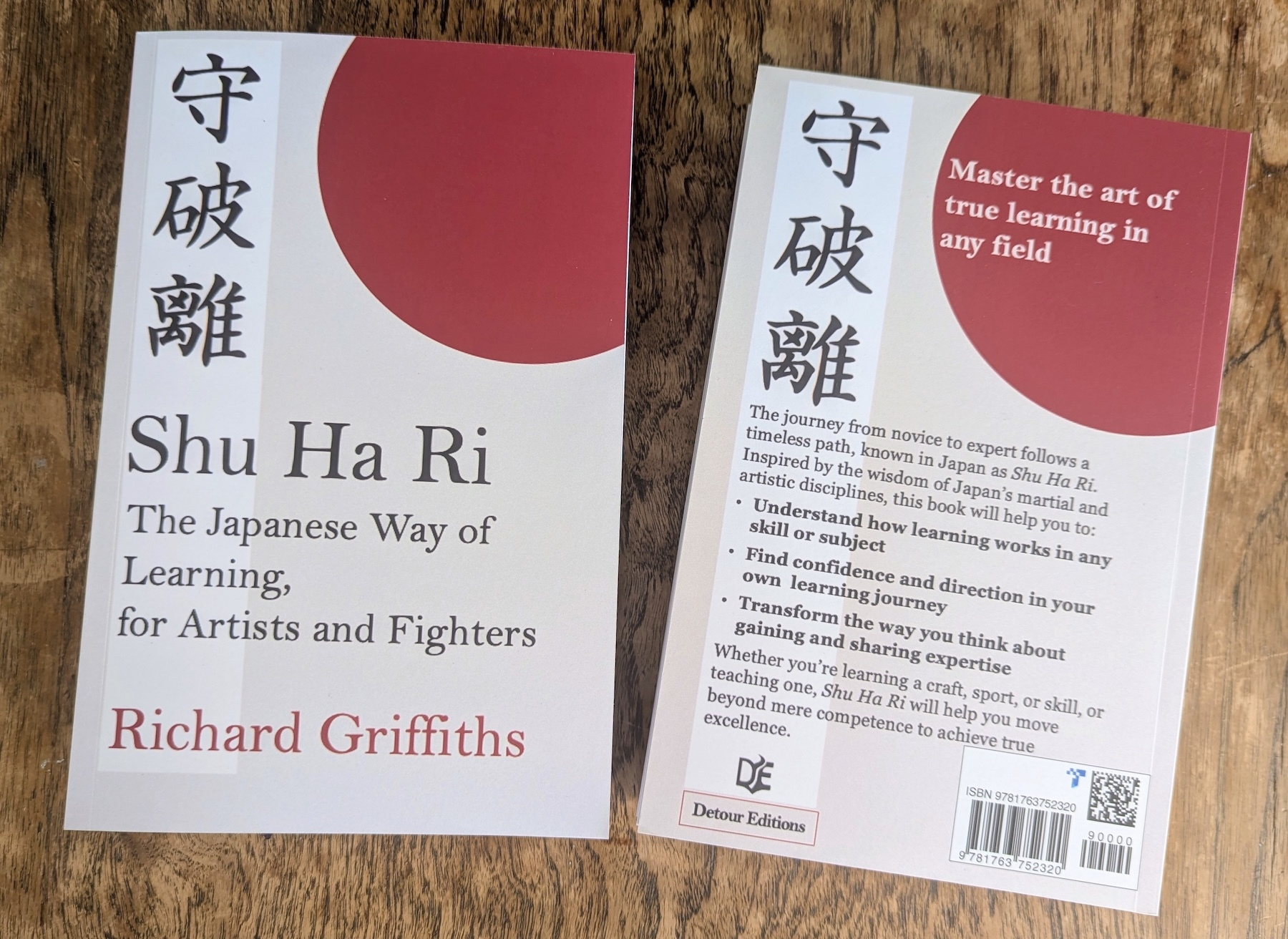
They’re both short, just 100 pages.
They’re both direct, covering one concept and one concept only.
They’re both Artist’s books, including photography (mine has 20 photographs of Japanese gardens, which I took myself).
They’re both originally self-published, to enable a singular, perhaps eccentric vision to find full expression.
They’re both the first book on a Japanese concept that no one in Japan, or anywhere else, has written yet, at least not a long-form treatment.
They’re both at the leading edge of an emerging trend.
Wait! What? What emerging trend is this? Well, I waited 15 years for someone better qualified than me to write about the concept of Shu Ha Ri. No one did. At least, no one else wrote a clear, well-referenced, accessible introduction. Eventually I relented, wrote the book I wished already existed, and put it out there for readers to make their own judgement. But what do you know? Very shortly after I published my own introduction to the concept, another appeared, written by the partnership of Hector Garcia and Nobuo Suzuki. It’s in Spanish only for now, but the English version is published by Tuttle in August 2026, so perhaps soon there’ll be a Shu Ha Ri cottage industry. You heard it here first.
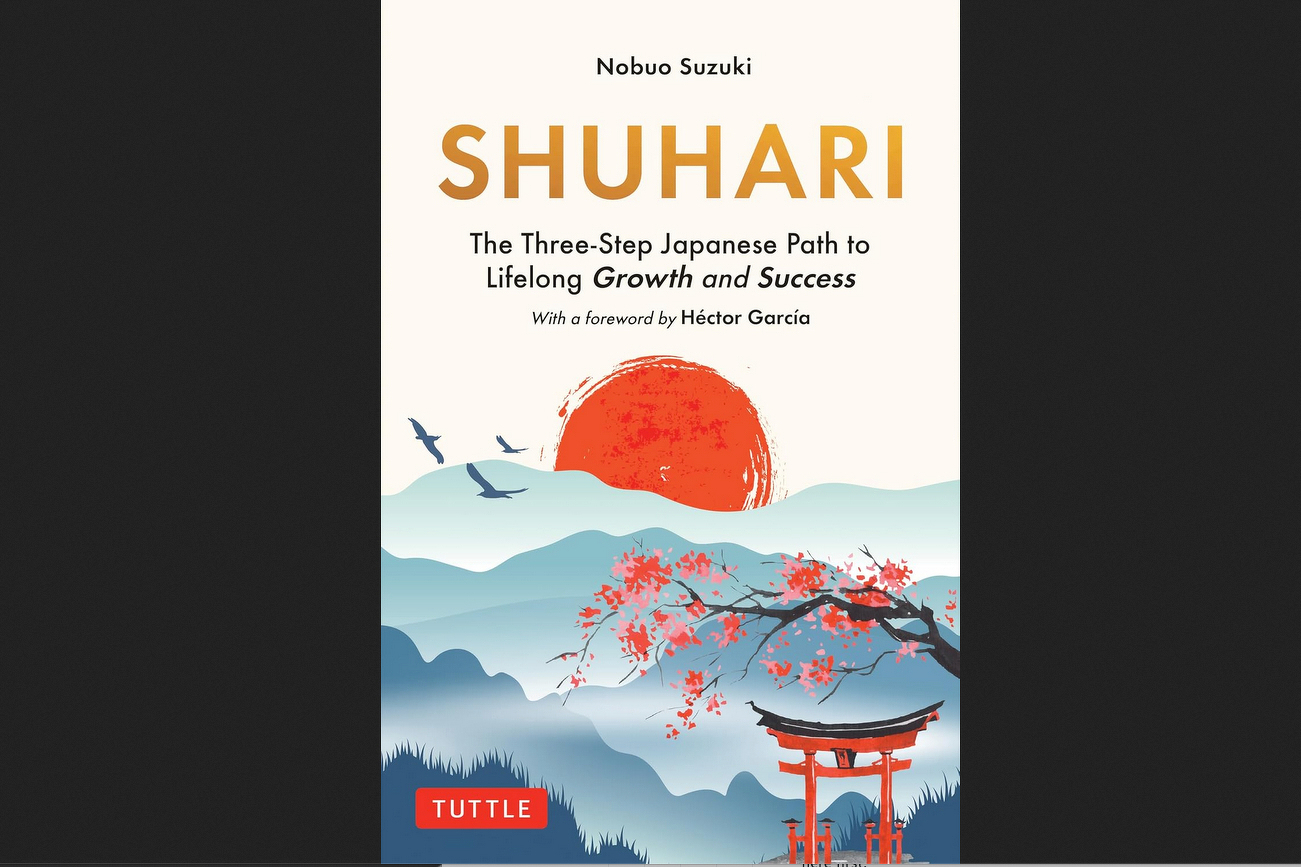
On my recent visit to Japan I walked past a gift shop in the small city of Matsumoto called ‘WabiXSabi’ (yes, in English), and it turns out there’s a whole chain of these stores across Japan. So maybe one day in the future someone will open a Shu Ha Ri shop, selling who-knows-what. Maybe it’ll be a footwear store. You heard that here first too.
But here’s word of warning to anyone thinking of trying this: Best not be selling anything fragile. Translated literally, Shu Ha Ri means ‘hold, break, leave’.
—
As you might have gathered, I’m the author of Shu Ha Ri: The Japanese Way of Learning, for Artists and Fighters, available now.
And if you found this article interesting you might like to sign up to the Writing Slowly weekly email digest. You’ll receive all the week’s posts in that handy email format you know and love.
Every interface is an argument about how you should feel. - Phantom Obligation | Terry Godier
This is my view of writing and note-making apps, but we can change them, to feel how we want, not how someone else wants us to.
The right kind of optimism in 2026
Happy New Year! May the next 12 months bring you peace and joy and blessing.
Here are a handful of hopeful articles to get your 2026 started on a positive note. I especially recommend the first one which I found deeply inspiring.
Shu Ha Ri and the philosophy of interior design
The late interior designer Professor Shigeru Uchida discusses the importance of Shu Ha Ri for design:
💬 “The current education system lacks “Shu.” There’s a total absence of the attitude to observe, study, and learn from others. The term “breaking the mold” is common, but without having learned anything from others, one cannot depart from or break away from anything.”
I’m the author of Shu Ha Ri. The Japanese Way of Learning, for Artists and Fighters, available now in paperback and ebook.
💬 “The way we organise our online lives bleeds into the way we organise the rest of our social interactions. If it’s just assumed without question that the online space is a fiefdom, then democracy everywhere is undermined.”
Why niche blogs and small rooms still win
#DigitalLife #Blogging #OnlineCommunity #SmallWeb #Fediverse #Decentralization
💬 “By jumping off your roof into a paddling pool with a goat in it you’ve probably enjoyed millions of views. You’ve probably gone totally viral. But the thing is… I don’t want to be a serf on someone else’s plantation.”
💬 Everyone has principles, don’t they, until the moment they see the phrase, “MySQL wasn’t configured properly”?
AI is not helping the learning process
💬 “When teachers rely on commonly used artificial intelligence chatbots to devise lesson plans, it does not result in more engaging, immersive or effective learning experiences compared with existing techniques”
See also:
Civic Education in the Age of AI: Should We Trust AI-Generated Lesson Plans? | CITE Journal
I’m the author of Shu Ha Ri: The Japanese Way of Learning, for Artists and Fighters, available now.

Provocative words about learning, teaching, AI, and the timely value of history
Do you like links? Here’s what I’ve come across on the Web lately: provocative words about learning, teaching, AI, and the timely value of history.
💬 “What A.I. can’t do is feel the shape of silence after someone says something so honest we forget we’re here to learn. What it can’t do is pause mid-sentence because it remembered the smell of its father’s old chair. What it can’t do is sit in a room full of people who are trying—and failing—to make sense of something that maybe can’t be made sense of. That’s the job of teaching.” — Sean Cho A. on teaching college during the rise of AI The Rumpus.
💬 “When human inquiry and creativity are offloaded to anthropomorphic AI bots, there is a risk of devaluing critical thinking while promoting cognitive offloading. If we turn the intellectual development of the next generation over to opaque, probabilistic engines trained on a slurry of scraped content, with little transparency and even less accountability, we are not enhancing education; we are commodifying it, corporatizing it, and replacing pedagogy with productivity.” — Courtney C. Radsch, We should all be Luddites • Brookings.
💬 “While the school says its students test in the top 1% on standardized assessments, AI models have been met with skepticism by educators who say they’re unproven.” — The $40,000 a year school where AI shapes every lesson, without teachers. CBS News. Wikipedia: Alpha School. I’ll revisit this in a few years to see just how hard it crashed (or not).
💬 “As our lives become more enmeshed with technological devices, services, and processes, I think that awareness is something which we the technology-wielding should strive for if we want to build a properly humane and empathic world.” — Matthew Lyon, The Fourth Quadrant of Knowledge • lyonheart.
💬 “Knowledge of history and awareness of history can allow us to see patterns, make connections, and identify incipient problems. It can give us a language and a set of references which allows us to step back, broaden our view, and see things and sometimes warn ourselves and others when necessary.” — Timothy Snyder on Stalin and Stephen Miller.
I’m the author of Shu Ha Ri. The Japanese Way of Learning, for Artists and Fighters, available now.. And for all the crunchy, fresh Writing Slowly goodness you can sign up to the weekly digest. It’s exactly like a bunch of radishes, but made out of email.

Publishing means no more hiding
Revelation must be terrible, knowing you can never hide your voice again. – David Whyte
Publishing my book, I had the strange feeling of having crossed an invisible but very powerful threshold.
It was while signing copies at a small and very supportive gathering, that it dawned on me that the thoughts that used to be just in my head are now public and exposed to the world – and since I’ve lodged this work in every State Library in Australia, they’ll never again be totally private.
I had thought I just wanted to publish my words, to release my book into the wild, as it were, to allow it to find its readers.
So it never occurred that I might have been benefiting in some way from the obscurity of the drafting process.
Not that I want to hide my voice – far from it.
Nor that I’m expecting a million readers. Again, far from it.
But the knowledge that I now have one unique reader – you – with whom my words will perhaps connect whether I bid them or not, well that changes things somehow.
And it’s certainly a revelation to realise there’s no going back.
My book, Shu Ha Ri: The Japanese Way of Learning, for Artists and Fighters, is out now. Please check it out.

Curious about Hypercuriosity
One reason I make notes and write is that I’m curious about everything.
I’ve written previously about how to be interested in everything. And I’ve also written about busybodies, hunters and dancers - three different styles of curiosity.
It was the ‘dancer’ style of curiosity that resonated most with me:
“This type of curiosity is described as a dance in which disparate concepts, typically conceived of as unrelated, are briefly linked in unique ways as the curious individual leaps and bounds across traditionally siloed areas of knowledge. Such brief linking fosters the generation or creation of new experiences, ideas, and thoughts.”
So I was interested to see that Anne-Laure Le Cunff, author of Tiny Experiments and founder of Ness Labs, Has been exploring what she calls ‘hypercuriosity’, which may be associated with ADHD.
Well, I guess I’m the living proof. I set out this evening to write about my book, Shu Ha Ri: The Japanese Way of Learning for Artists and Fighters but I ended up writing about something completely different instead: hypercuriosity.
Come to think of it, that’s how the book got written in the first place, by pursuing my curiosity. And come to think of it, that’s how I do practically everything.
In writing the book I was particularly attracted by the value placed on the Japanese concept of shoshin (初心), ‘beginner’s mind’ - a quality often downplayed in Western contexts, where experts are supposed to already know everything.
I’m more interested in not knowing - and then going to great lengths to find out.
Links:
Brar, G. (2024, November 14). The hypercuriosity theory of ADHD: An interview with Anne-Laure Le Cunff. Evolution and Psychiatry (Substack).
Gupta, S. (2025, September 16). People with ADHD may have an underappreciated advantage: Hypercuriosity. Science News.
Le Cunff, A. (2024). Distractability and impulsivity in ADHD as an evolutionary mismatch of high trait curiosity. Evolutionary Psychological Science, 10, 282.
Le Cunff, A. (2025, July 15). When curiosity doesn’t fit the world we’ve built: How do we design a world that supports hypercurious minds? Ness Labs.
If you’re curious to catch the latest Writing Slowly action, please subscribe to the weekly email digest. All the posts, delivered straight to your in-box.
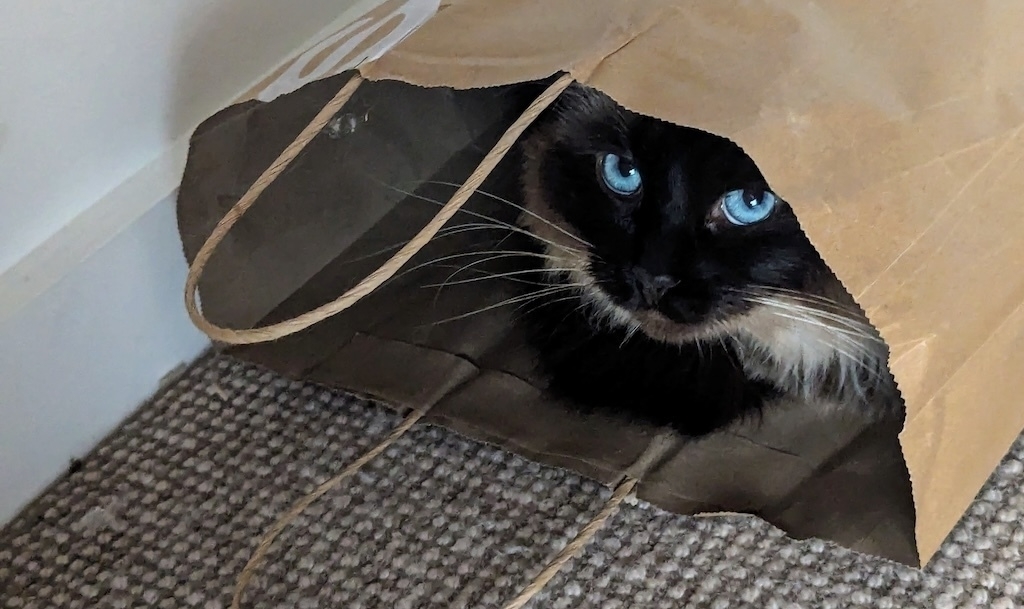
Keeping a diary is a way of living
“A diary is not only a text: it is a behaviour, a way of life, of which the text is a by-product" - French theorist Philipe Lejeune. Source: Arts & Ideas Podcast.
Exactly so. I have a journalling habit, which fuels my Zettelkasten, (my collection of linked notes), which in turn fuels my writing. This in turn affects my life, which I journal about. It’s a virtuous circle.
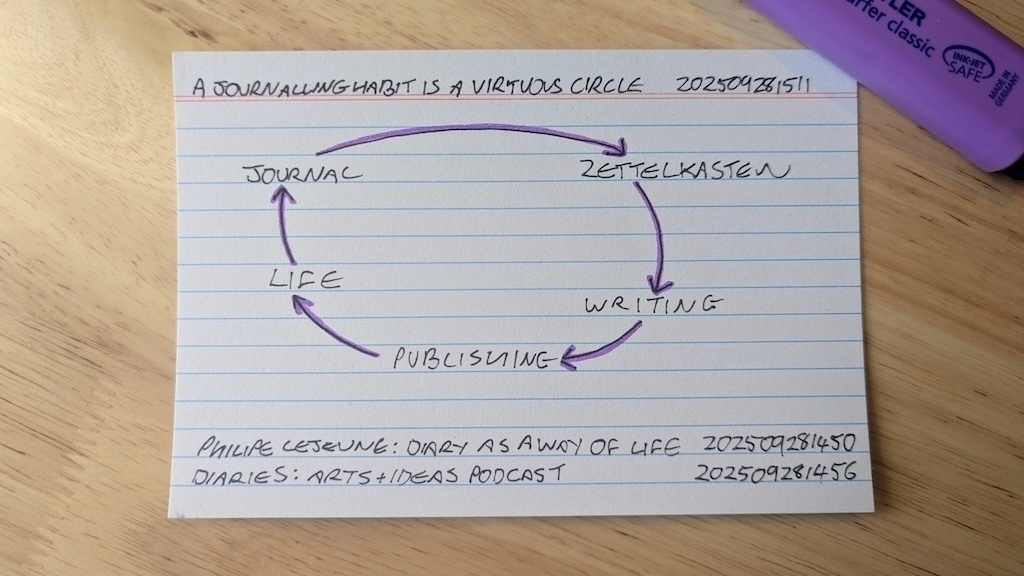
I’m the author of Shu Ha Ri: The Japanese Way of Learning, for Artists and Fighters.
And did you know you can sign up to the Writing Slowly weekly email digest?
Zettelkasten podcast episodes
Here are a couple of podcast interviews where the Zettelkasten approach to making notes is discussed in detail. Enjoy!
William Wadsworth (Exam Study Expert) interviews Sonke Ahrens, author of How to Take Smart Notes. Apple Podcasts.
Sönke Ahrens on Niklas Luhmann’s writing process:
“The main part of the writing process happened in this in-between space most people, I believe, neglect. They write notes, they read, they polish their manuscripts, but I think few people understand the importance of taking proper notes and organising them in a way that a manuscript, an argument, a chapter can evolve out of that.”
Jackson Dahl (Dialectic) interviews Billy Oppenheimer, Ryan Holiday’s research assistant, on staying attuned for clues. Apple Podcasts.
“I adopted/adapted Ryan Holiday’s notecard system, which he learned from Robert Greene. And it’s just literally boxes of 4x6 notecards. I’ve never seen Robert’s actual cards, but I have seen Ryan’s. His are filled with shorthands: a maybe a phrase, a word, or a single sentence that conveys a story from some book. They are little reminders capturing the broad strokes of something. You notate it with the book and page number so you can go back and find the specific details.”
“Niklas Luhmann also has another great idea about making notes for an ignorant stranger… Because that’s what you are when you come back to it. We think, “There’s no way I’m going to forget this story.” You come back to it, and it’s highlighted and underlined. You’re like, “What was I loving about this?” I try to make the note cards for an ignorant stranger. You should be able to pick one up and have enough context to make out what this thing is. And so in a similar way, in the margins of books, I try to do that for myself.”
What does it mean to transcend the rules?
A martial arts dedication performed by Japanese karate practitioner Kiyou Shimizu at Kiyomizu-dera Temple, Kyoto.
This former world champion has retired from competitive karate, and is finding new ways to express her mastery of the discipline.

Watching this dedication reminded me of some words of the kabuke actor Nakamura Kanzaburo XVIII:
“You break the mold because there is a mold, and if there is no mold, you have no form."1
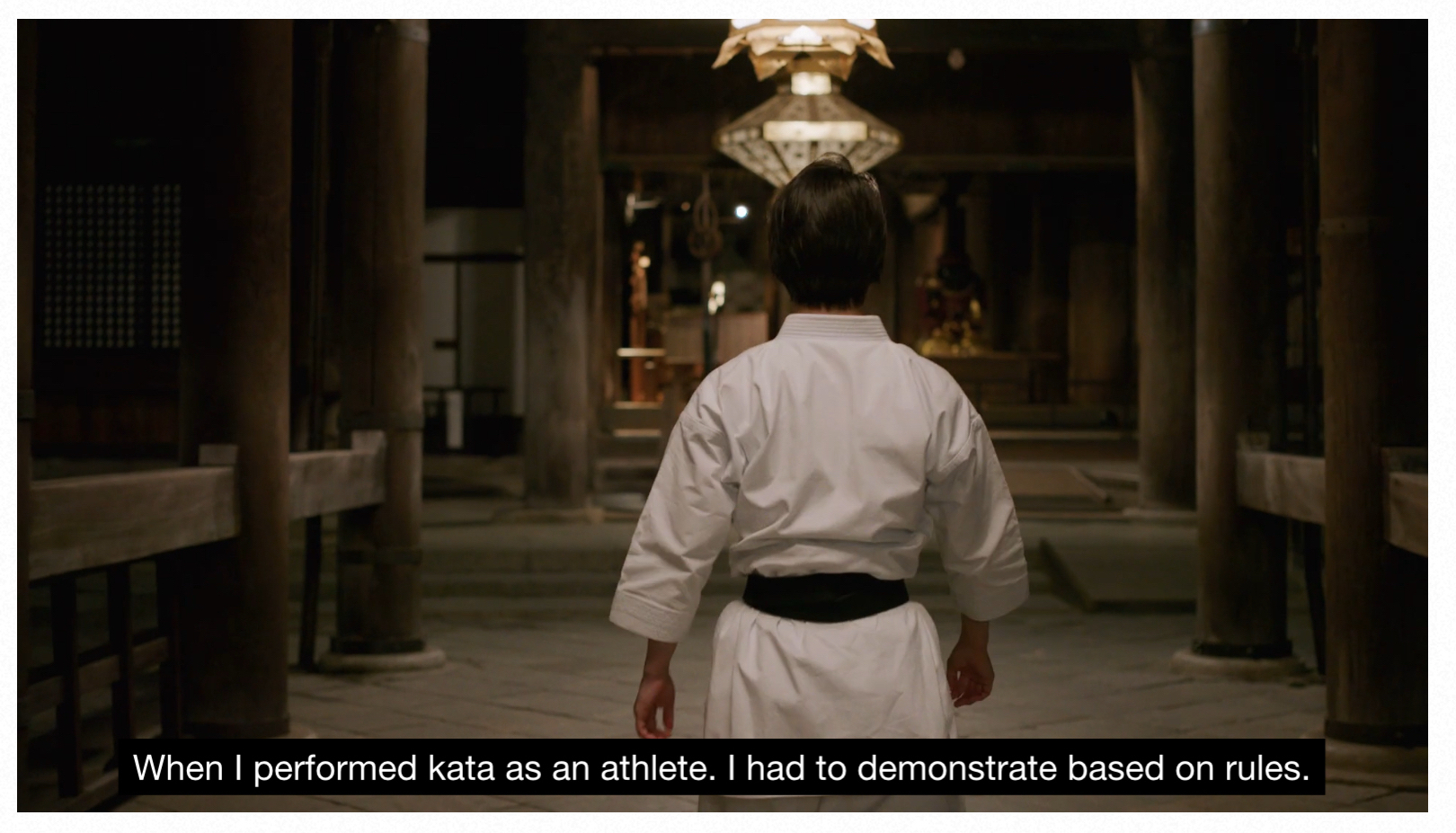
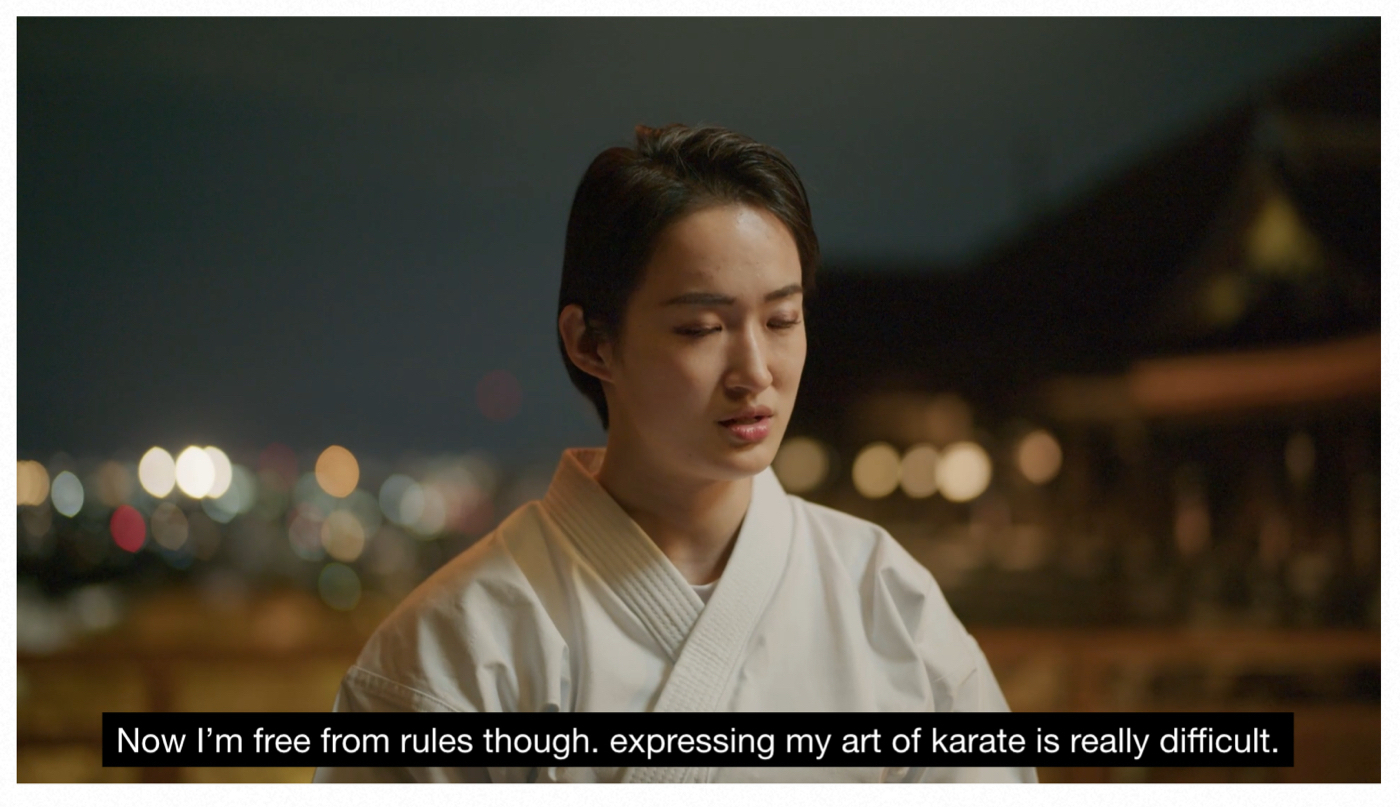
I’m the author of Shu Ha Ri: The Japanese Way of Learning, for Artists and Fighters. It’s a short and accessible introduction to the concept, available now.
And if you liked this article, why not subscribe to the weekly Writing Slowly email digest?
#Shuhari #martialarts #karate #kyoto #kiyomizudera
“The creative life is not linear. It’s not a straight line from point A to point B. It’s more like a loop, or a spiral, in which you keep coming back to a new starting point after every project. No matter how successful you get, no matter what level of achievement you reach, you will never really “arrive.”” - Austin Kleon, Keep Going.
Is this daunting, or reassuring?
#shuhari #learning
If there's more than one way of seeing, there's more than one way of organising
💬 “Our eyes are built for two perspectives. During the daytime we rely on our cone cells, which depend on lots of light and let us see details. At night the cone cells become useless and we depend on rod cells, which are much more sensitive. The rod cells in our eyes are connected together to detect stray light; as a result they don’t register fine details. If we want to see something in bright light, we focus the image on the center of our retina (the fovea), where the cone cells are tightly packed. To see something at night, we must look off to the side of it, because staring directly at it will focus the object on the useless cone cells in the fovea. The way we see in bright light differs from the way we see in shadows. Neither is the ‘‘right’’ way. We need both.” - Gary Klein (2009) Streetlights and Shadows. Searching for the Keys to Adaptive Decision-making. Cambridge, MA: MIT Press.
On reflection, more can be said along these lines. Another way of looking at this ‘double perspective’ of human vision is to note that it constantly depends on some kind of accommodation between our two eyes working simultaneously and in concert.
So although vision is actually several processes taking place at once, we insist on perceiving it as one unified process. We can’t help it. We’re made to synthesize. But that doesn’t mean it is one process.
💬 On Notebooks and Thinking Better Thoughts
Once we’ve let our thoughts mature for a while, we’ll want to produce something for other people to look at, an artifact.
Exactly so.
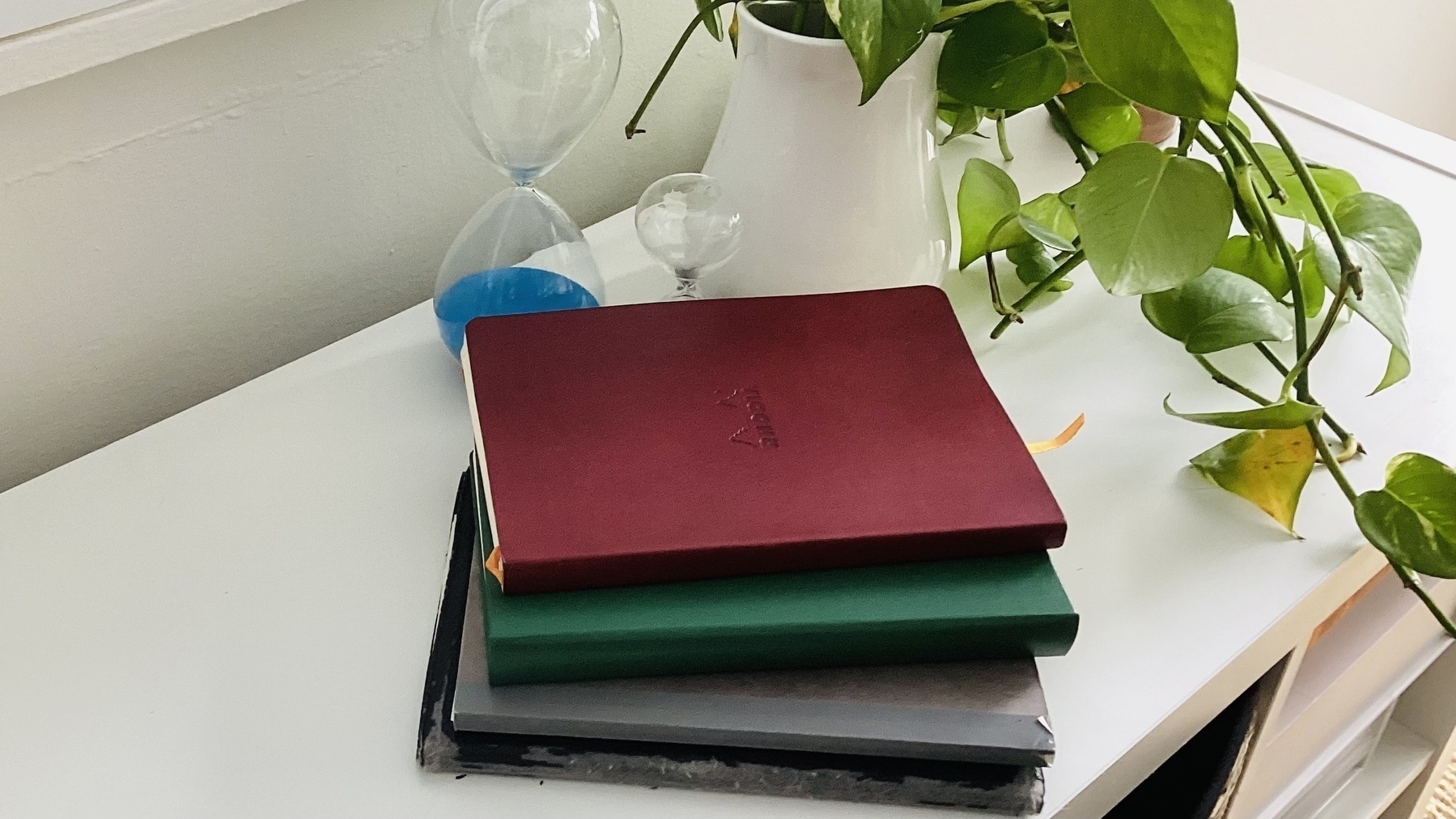
As Alan Jacobs says, reading more books and reading books more - they’re not the same thing.
💬 “The things that make us different, in the right context are superpowers. You know, Saul Steinberg said the thing that we respond to in any work of art is the struggle of the artist against his or her limitations.”
This makes me feel like there’s an awful lot of wrong context lying about. I guess we all need to find a place where we can thrive, or else make it ourselves.
The original quote is from Kurt Vonnegut’s recollection of a conversation with Saul Steinberg.
#creativity #writerslife #deepthoughts #inspiration